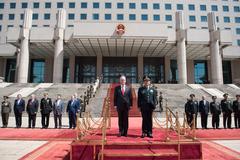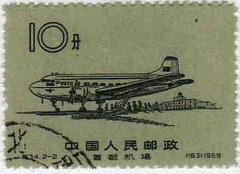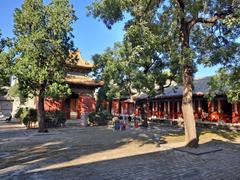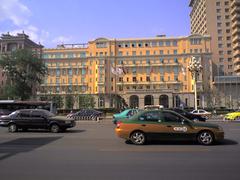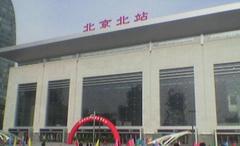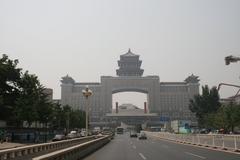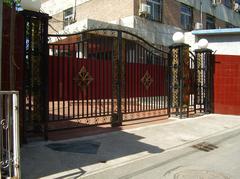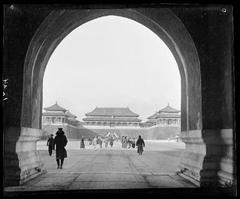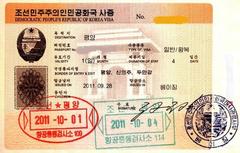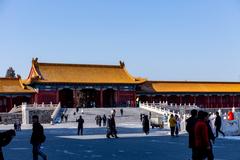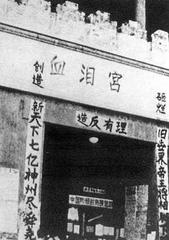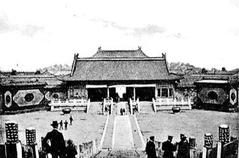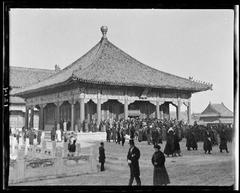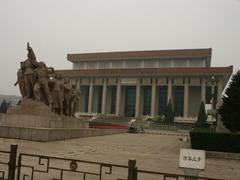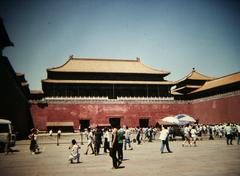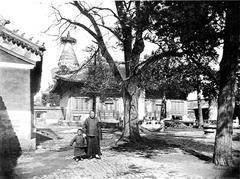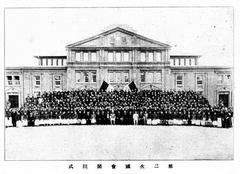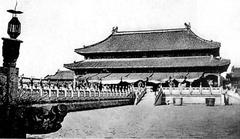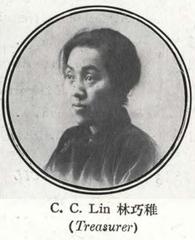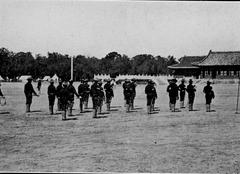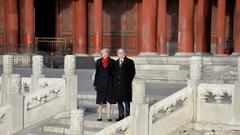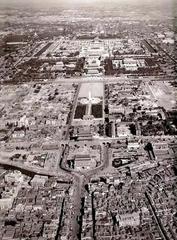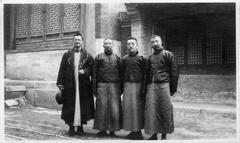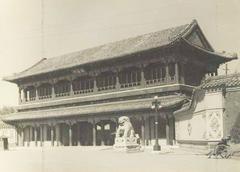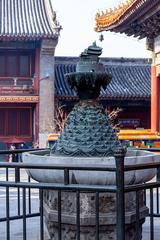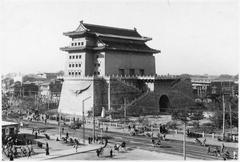Embassy of Suriname Beijing: Visiting Hours, Tickets, and Visitor Information
Date: 04/07/2025
Introduction
The Embassy of Suriname in Beijing is a cornerstone of the diplomatic relationship between Suriname and the People’s Republic of China. Since its establishment following Suriname’s independence in 1975, the embassy has facilitated nearly five decades of engagement characterized by mutual respect, economic cooperation, and cultural exchange. It is not only a center for consular services but also a vital hub for promoting bilateral partnerships, trade, and cultural understanding between the two nations (FMPRC, 2024; Gov.cn, 2019).
Situated in Beijing’s diplomatic district, the embassy provides accessible and comprehensive support to Surinamese nationals and Chinese citizens interested in Suriname. Services include visa issuance, passport renewal, document legalization, emergency assistance, and the facilitation of economic and cultural exchanges. For tourists, business travelers, or those seeking consular aid, understanding the embassy’s functions and visiting protocols ensures a smooth and informed experience (Suriname Embassy Beijing; Visa-to-Travel; TravelChinaGuide).
Table of Contents
- Early Foundations of Suriname–China Diplomatic Relations
- Political and Strategic Partnership Evolution
- Economic and Development Cooperation
- Cultural and People-to-People Exchanges
- The Embassy’s Role in Bilateral Relations
- Milestones and Recent Developments
- Visitor Information: Location, Hours, and Services
- Consular Services: Visas, Passports, and Legalization
- How to Get There and Nearby Attractions
- Practical FAQs and Tips
- Summary and References
1. Early Foundations of Suriname–China Diplomatic Relations
Suriname was among the first Caribbean nations to recognize the People’s Republic of China, establishing diplomatic ties in 1976—a year after its independence. This early engagement was built on the principles of mutual respect, non-interference, and South-South cooperation (FMPRC, 2024). Suriname has consistently upheld the “One China” policy, while China has supported Suriname’s sovereignty and development, laying a strong foundation for long-term cooperation (Gov.cn, 2019).
2. Political and Strategic Partnership Evolution
The relationship has steadily deepened, culminating in the upgrade to a strategic partnership of cooperation in 2019. Key features include:
- Political Mutual Trust: Frequent high-level exchanges reinforce diplomatic trust.
- Support for Multilateralism: The two countries often align in international forums, advocating for multilateralism and international law (Gov.cn, 2019).
3. Economic and Development Cooperation
Economic collaboration is central to bilateral relations. Suriname was one of the first Caribbean states to join China’s Belt and Road Initiative, boosting connectivity and investment.
- Infrastructure: Chinese projects have contributed to roads, bridges, and public facilities in Suriname.
- Health and Agriculture: Cooperation has advanced healthcare delivery and food security.
- Trade: Suriname exports bauxite, timber, and agricultural products to China, while importing machinery and electronics. The embassy plays an active role in promoting Surinamese products and attracting Chinese investments (Suriname Embassy Beijing).
4. Cultural and People-to-People Exchanges
The Surinamese Chinese community, one of the largest in the Caribbean, has greatly influenced Suriname’s development:
- Chinese New Year as a National Holiday: Suriname is the first country in the Western Hemisphere to make Chinese New Year a national holiday (FMPRC, 2024).
- Educational and Youth Exchanges: Student exchanges, scholarships, and Confucius Institutes promote language and cultural learning.
- Business and Youth Organizations: The embassy supports the Suriname Chinese Business Alliance and youth initiatives (Suriname Embassy Beijing).
5. The Embassy’s Role in Bilateral Relations
The embassy manages diplomatic representation, consular services, and the promotion of cooperation in economic, cultural, and educational spheres:
- Diplomatic Representation: Facilitating high-level visits, negotiations, and agreements.
- Consular Services: Visa and passport services, legal support, and emergency aid (Visa-to-Travel).
- Promotion of Cooperation: Supporting business, cultural, and scientific exchanges (Suriname Embassy Beijing).
Ambassador H.E. Pick Fung Ho-Chong, appointed in February 2023, prioritizes investment, entrepreneurship, and youth engagement.
6. Milestones and Recent Developments
Notable milestones include:
- 45th Anniversary (2025): Celebrating four and a half decades of diplomatic ties (MFA China, 2025).
- COVID-19 Support: China provided medical supplies and expertise during the pandemic (FMPRC, 2024).
- Belt and Road Initiative: Ongoing infrastructure and trade cooperation (FMPRC, 2024).
7. Visitor Information: Location, Hours, and Services
Embassy Location and Contact Information
- Address: 2-2-22, Jianwai Diplomatic Residence Compound, No.1 Xiushuijie, Chaoyang District, Beijing 100600, China
- Telephone: +86 10 6532-2938, +86 10 6532-2939
- Fax: +86 10 6532-2941
- Email: [email protected], [email protected], [email protected], [email protected]
- Official Website: Suriname Embassy Beijing
Visiting Hours
- Monday to Friday: 9:00 AM – 5:00 PM
- Closed: Saturdays, Sundays, and Chinese public holidays
Appointments are strongly recommended for all consular services. Walk-ins may be accommodated for general inquiries, but scheduled visits are prioritized (Embassies.info).
8. Consular Services: Visas, Passports, and Legalization
Visa Application Process
Suriname has implemented an E-Visa and E-Tourist Card system (VFS Global Suriname E-Visa), but the embassy continues to provide assistance for in-person applications. Key points:
- E-Visa Application: Apply online for tourist, business, or transit visas. Chinese passport holders must obtain an E-Visa or E-Tourist Card before arrival; Hong Kong SAR passport holders may enter visa-free with a return ticket.
- Documents Required: Valid passport, recent photo, travel itinerary, accommodation proof, and supporting documents (TravelChinaGuide).
- Fees: Tourist Visa: USD 30, Business Visa: USD 50, Transit Visa: USD 10. Fees and processing times may vary.
- In-person Support: The embassy assists with applications, document verification, and guidance.
Passport Services
Surinamese citizens can apply for new passports, renewals, or emergency travel documents. Required documents include proof of citizenship, previous passport, photos, and in the case of loss, a police report.
Legalization and Notarial Services
The embassy legalizes and notarizes documents for official use, including birth, marriage, and death certificates, academic records, and business documents. This ensures mutual recognition between Suriname and China.
Other Consular Services
- Civil registrations (birth, marriage, death)
- Assistance with nationality and citizenship issues
- Emergency support and repatriation for Surinamese citizens
For a complete list, visit the embassy’s official website or contact the consular section directly (embassy-in-china.com; embassylist.net).
9. How to Get There and Nearby Attractions
Getting to the Embassy
- Subway: Jianguomen Station (Lines 1 and 2) is within walking distance (TravelChinaGuide).
- Taxi: The Jianwai Diplomatic Compound is a recognized location for taxi drivers.
- Public Bus: Multiple lines serve the Chaoyang District.
Nearby Attractions
- Wangfujing Street: A popular shopping and dining destination.
- National Museum of China: One of the world’s largest museums, located on Tiananmen Square.
- 798 Art District: Known for contemporary art and culture.
10. Practical FAQs and Tips
Q1: What are the embassy’s visiting hours?
A1: Monday to Friday, 9:00 AM – 5:00 PM; closed on weekends and Chinese public holidays.
Q2: How do I schedule a visa appointment?
A2: Contact the embassy in advance by phone or email. Most services require appointments (123Embassy).
Q3: What documents are needed for a visa?
A3: Valid passport, photo, travel itinerary, accommodation proof, and any other documents specified by the embassy or VFS Global.
Q4: Is photography allowed inside the embassy?
A4: No, photography is prohibited within the embassy compound.
Q5: What languages are spoken at the embassy?
A5: English, Dutch, and Chinese. For complex matters, correspondence in English or Chinese is recommended.
Q6: What should I know about security and accessibility?
A6: Bring a valid photo ID, arrive early for security checks, and dress in business or smart casual attire. The embassy is accessible for visitors with mobility needs.
11. Summary and References
The Embassy of Suriname in Beijing is a vital platform for advancing Suriname–China relations, offering essential services and supporting economic, cultural, and diplomatic engagement. Whether you need visa assistance, passport services, or wish to explore investment and cultural opportunities, the embassy provides professional support and up-to-date guidance. For the most current information, always consult the official website or contact the embassy directly.
References and Official Links
- Ministry of Foreign Affairs of the People’s Republic of China – Early Foundations of Suriname-China Diplomatic Relations (2024)
- Central Government of China – Political and Strategic Partnership Evolution (2019)
- Suriname Embassy Beijing – Official Website
- Visa-to-Travel – Consular Information (2025)
- TravelChinaGuide – Visitor Information (2024)
- Ministry of Foreign Affairs of China – 45th Anniversary of Diplomatic Ties (2025)
- Embassy-in-China.com – Consular Services Overview
- Embassylist.net – Embassy Information
- 123Embassy – Appointment Scheduling
- Embassies.info – Contact Details and Location
- VFS Global Suriname E-Visa Portal
- Suriname Government – Guide for Immigrants

